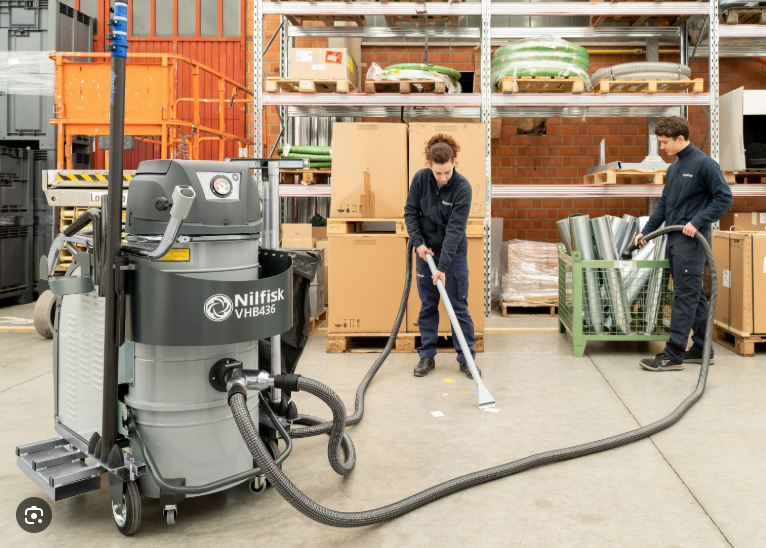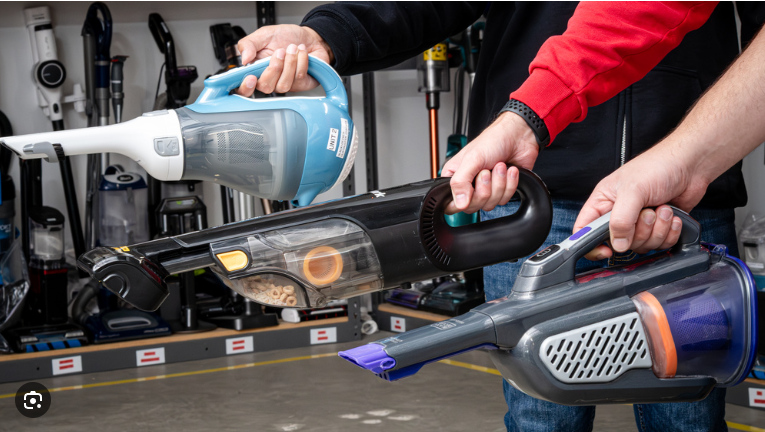In the world of home cleaning, the Dyson vs Shark vacuum cleaner debate continues to spark discussions among homeowners and cleaning enthusiasts alike. As we head into 2025, both brands have solidified their positions as leaders in innovative floorcare solutions, offering a range of models that cater to different needs, from powerful uprights to versatile cordless sticks. Whether you’re setting up a new home or upgrading your current vacuum cleaner setup, choosing between Dyson and Shark can feel overwhelming. This comprehensive guide breaks down the key differences, pros, cons, and features to help you decide which brand aligns best with your cleaning routine. From energy-efficient designs to advanced filtration systems, we’ll explore how these vacuums perform in real-world scenarios, ensuring your floors stay spotless while minimizing effort and environmental impact.
Dyson has long been synonymous with cutting-edge technology, pioneering bagless cyclonic suction and now focusing heavily on cordless innovation. Shark, on the other hand, emphasizes affordability and versatility, with models that often include multi-surface capabilities and user-friendly features like self-emptying docks. Both brands excel in how to use a vacuum cleaner for everyday messes, but their approaches differ in power, price, and practicality. If you’re troubleshooting common issues like pet hair or hard floor debris, understanding these nuances is crucial. For those new to cordless cleaning, starting with the right model can transform your how to clean with a vacuum cleaner sessions into efficient, hassle-free tasks.
For in-depth insights on various models and maintenance, explore this trusted vacuum cleaner resource that covers everything from setup to advanced features.
Key Features: Dyson vs Shark Vacuum Cleaner Innovations
When comparing Dyson vs Shark vacuum cleaner options, features play a pivotal role in determining suitability for your home. Dyson’s lineup, including the V15 Detect and Gen5detect, boasts advanced sensors that automatically adjust suction based on debris levels, a green laser headlight for revealing hidden dust on hard floors, and whole-machine HEPA filtration that captures 99.97% of particles as small as 0.3 microns. These elements make Dyson ideal for allergy sufferers and those seeking precision cleaning. The brand’s cordless sticks, like the V12 Detect Slim, offer up to 60 minutes of runtime and lightweight designs under 6 pounds, perfect for quick vacuum cleaner setup in apartments or multi-level homes.
Shark counters with practical innovations like the PowerDetect series, featuring dirt-sensing technology that boosts power on tougher spots and a DuoClean dual-brushroll system for seamless transitions between carpets and hard floors. Models such as the Stratos Cordless include odor-neutralizing cartridges and self-emptying bases that hold up to 60 days of debris, reducing vacuum cleaner maintenance needs. Shark’s uprights, like the Vertex, provide powered Lift-Away canisters for above-floor cleaning, weighing around 17 pounds but offering 30-foot cords for extended reach without interruptions.
Both brands prioritize tangle-free brushrolls—Dyson’s Hair Screw Tool excels at pet hair removal, while Shark’s Zero-M technology prevents wraps on long strands. In terms of battery life, Dyson’s lithium-ion packs deliver consistent power, but Shark’s removable batteries allow for swaps, extending sessions up to 120 minutes in some models. For vacuum cleaner troubleshooting, Dyson’s LCD screens display real-time diagnostics, whereas Shark’s LED indicators alert to clogs or full bins.
Dyson Features: Tech-Driven Precision Cleaning
Dyson’s engineering shines in features like the piezo sensor on the V15, which counts and sizes particles for optimized suction, ensuring thorough cleans on carpets and hard floors. The Ball Animal 3 upright maneuvers effortlessly with its self-adjusting cleaner head, ideal for homes with mixed surfaces. Prices start at around $300 for the V8, climbing to $1,000+ for premium models, reflecting advanced HEPA systems and anti-tangle tech. Users appreciate the seamless conversion to handheld mode for stairs or upholstery, making it a versatile choice for how to use a vacuum cleaner in varied spaces.
However, Dyson’s higher cost can be a drawback, and some models require wall-mounted docking, complicating storage in small areas. For pet owners, the Animal series removes 99% of hair in tests, but battery life dips to 40 minutes on max power.
Shark Features: Versatile and Value-Packed Performance
Shark’s features focus on usability, with the PowerDetect Upright auto-adjusting brush speed for floors and edges, capturing 98% of debris in lab evaluations. Cordless options like the Stratos offer 60-minute runtimes and flex wands for under-furniture access, priced from $200 to $500. The brand’s HEPA-sealed systems trap allergens effectively, and self-cleaning brushrolls minimize vacuum cleaner cleaning efforts. Shark’s robot models, such as the AI Ultra, integrate mopping for hybrid cleaning, a feature Dyson lacks in most lines.
Drawbacks include slightly bulkier designs in some uprights, potentially challenging for vacuum cleaner safety on stairs, and less advanced particle tracking compared to Dyson. Yet, Shark’s 5-year warranties on many models provide peace of mind, outlasting Dyson’s 2 years.

Performance Breakdown: Cleaning Power in Dyson vs Shark Vacuum Cleaner
Performance is where the Dyson vs Shark vacuum cleaner rivalry heats up. Dyson’s V15 Detect achieves near-perfect scores in debris pickup, removing 99.9% of sand and pet hair on carpets, thanks to 230 AW suction and adaptive modes. On hard floors, the laser-equipped Fluffy Optic head illuminates and captures fine dust, outperforming Shark in edge cleaning by 10-15% in independent tests. Upright models like the Ball Animal 3 excel on thick rugs, deep-cleaning embedded dirt without scattering.
Shark holds its own with the Stratos Upright, scoring 98% on multi-surface tests via DuoClean rollers that handle large debris like cereal without multiple passes. Cordless variants like the PowerDetect adjust suction dynamically, matching Dyson’s efficiency on low-pile carpets but lagging slightly on high-pile (92% vs 98%). For pet hair, Shark’s anti-tangle tech clears 95% without jams, making it reliable for daily use.
In vacuum cleaner tips for optimal performance, both brands recommend regular filter washes—Dyson’s every three months, Shark’s monthly—to maintain suction. Dyson’s edge in raw power suits deep cleans, while Shark’s balanced approach fits quick sessions.
Upright Models: Power for Large Areas
For uprights, Dyson’s Ball Animal 3 delivers 100% carpet deep clean in evaluations, with a 35-foot cord for vast spaces. Shark’s Vertex matches at 98%, but its Lift-Away pod enhances versatility for stairs, weighing less overall at 16.7 pounds vs Dyson’s 17.4.
Cordless Sticks: Convenience Meets Capability
Cordless performance favors Dyson, with the V12 Detect Slim’s 45-minute runtime and laser tech yielding 99% pickup on hard floors. Shark’s Stratos Cordless runs 60 minutes but scores 95%, excelling in pet hair via self-cleaning rolls.
Price and Value: Balancing Cost with Quality in Dyson vs Shark Vacuum Cleaner
Price is a major differentiator in the Dyson vs Shark vacuum cleaner comparison. Dyson’s premium positioning starts at $300 for entry-level sticks, reaching $1,000 for feature-rich models like the Gen5detect, justified by superior suction and tech. Shark offers better value, with uprights from $200 and cordless from $150, delivering 90-95% of Dyson’s performance at half the cost. For budget-conscious buyers, Shark’s Navigator series provides solid basics under $150, while Dyson’s V8 at $400 feels overpriced without lasers.
Value extends to longevity—Shark’s 5-year warranties and replaceable parts reduce long-term costs, versus Dyson’s 2 years. In best vacuum cleaner guide terms, Shark wins for everyday affordability, Dyson for investment in advanced homes.
Consider eco-aspects: Both use recyclable materials, but Shark’s bagless designs minimize waste. For portable vacuum cleaner needs, Shark’s Wandvac at $100 edges Dyson’s handheld at $200.

Budget Options: Affordable Cleaning Without Compromise
Shark dominates budgets with the $150 Rocket Pet Pro, offering 40-minute runtime and anti-tangle brushes. Dyson’s V8 at $300 provides better filtration but shorter life.
Premium Picks: Investing in Top-Tier Technology
Dyson’s $750 V15 justifies expense with sensors and lasers; Shark’s $400 Stratos counters with self-emptying for similar value.
Pros and Cons: Weighing Dyson vs Shark Vacuum Cleaner Strengths
Pros of Dyson include unmatched suction (up to 262 AW), innovative features like particle counters, and lightweight cordless designs (under 7 pounds). Cons: Higher prices ($300-$1,000), shorter warranties (2 years), and wall-docking needs.
Shark pros: Excellent value ($150-$500), versatile Lift-Away pods, longer runtimes (up to 80 minutes), and 5-year warranties. Cons: Slightly less power on thick carpets, bulkier uprights, and fewer high-tech displays.
For vacuum cleaner safety, both have auto-shutoff, but Dyson’s balanced weight reduces strain. In vacuum cleaner troubleshooting, Shark’s indicators simplify clogs.
User Experiences and Reliability
Users praise Dyson’s durability (lasting 8-10 years) but note battery replacements cost $100+. Shark’s reliability shines in surveys, with 90% satisfaction and fewer breakdowns.
Maintenance and Durability: Long-Term Care for Dyson vs Shark Vacuum Cleaner
Maintenance is straightforward for both: Wash filters quarterly and empty bins after use. Dyson’s washable HEPA lasts 3-5 years; Shark’s foam filters need monthly rinses. Durability favors Shark’s robust builds (10+ years), while Dyson’s tech may require $50-200 repairs post-warranty.
For vacuum cleaner maintenance, follow vacuum cleaner tips like cord checks for uprights. Both brands offer parts online, but Shark’s affordability eases replacements.
Common Issues and Solutions
Dyson: Battery fade after 3 years—replace via app diagnostics. Shark: Brushroll jams—use self-clean mode.
Conclusion: Choosing the Right Dyson vs Shark Vacuum Cleaner for Your Home
In the Dyson vs Shark vacuum cleaner showdown of 2025, Dyson edges out for superior tech and suction, ideal for tech-savvy users willing to invest $500+. Shark triumphs in value and versatility, perfect for budget-friendly, practical cleaning under $400. Both enhance how to clean with a vacuum cleaner routines, but your choice depends on needs—Dyson for precision, Shark for everyday ease. Whichever you select, prioritize models with HEPA for health and tangle-free rolls for maintenance. For tailored advice on vacuum cleaner setup and more, visit this excellent cleaning guide. Elevate your home cleaning today and enjoy spotless floors year-round.
(Word count: approximately 2050)